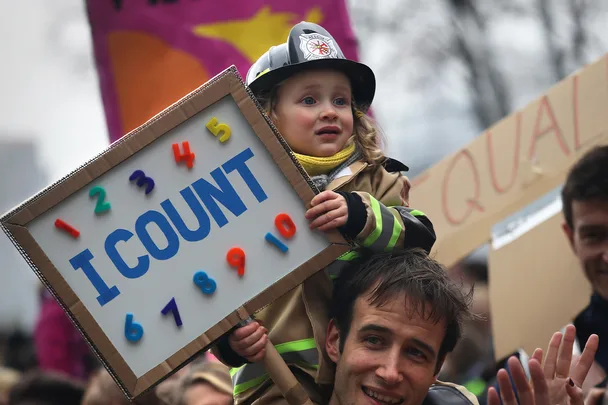While the 2021 Women’s March may be facing a few logistical challenges this year due to the ongoing pandemic, the current efforts of organisers are by no means any less important. As many countries are still experiencing lockdowns and maintaining social distancing, it’s going to be a while before the historic turnout that we’ve seen at previous Women’s Marches is likely to return. Instead, Women’s March Global, the organisation behind the protests and marches for gender equality are hoping to see an impressive digital turnout this year.
Launched in late January, Global Count is a “count of all women, non-binary, and transgender people from every country, culture and racial background around the globe.” The survey aims to collect deep and detailed data about the issues that women are facing in the wake of the pandemic.
Through the initiative, they hope to remedy the scarcity of solid insights and data about what women need and want, as well as ensuring this data is actually utilised in policy and programme design. If you needed any more evidence—beyond our experiences, literally every day—that women are consistently short-changed in the world, consider the many ways that many common items and fundamental safety features aren’t designed with women in mind at all.
“Every year since 2017, we have built our capacity to mobilise and assemble around critical issues around critical issues,” says Uma Mishra-Newbery, a Women’s March Global board member. “However, it’s time that we truly understand and collect data on what issues people face around the world. Data around these key issues on a global and local level is scarce. Yet, it is vitally needed, not only for movements but local collectives, funding institutions and the non-profit sector at large. The data collected from Global Count will be shared across these spaces and will put power directly in the hands of the people who take the survey.”
What does the Global Count involve?
The poll will be live until International Women’s Day on March 9th or the 8th of March for us here in Australia. Up till then, the women, non-binary and transgender people from all over the world are encouraged to participate in the survey. The more respondents the better here, as the Women’s March Global organisation is hoping to “use our collective voice to design our new world.” The survey flags up front, “we will be raising topics related to gender-based violence and abuse and asking questions that may be difficult for marginalised groups.”
The Global Count survey takes around 10-minutes to complete and encourages people to answer what issues most affect them and their community. The scope of options is quite wide and includes ending violence and abuse, reproductive freedom, economic freedoms and racial justice among others. From there, respondents can then rate the biggest barriers to achieving justice in those areas. The survey ends with a pertinent open-ended question: “what does progress for women’s human rights look like for you in 10 years?”
If you want to make your voice heard and hopefully prioritised, join the Global Count.
Lead image via John Moore/Getty Images.










